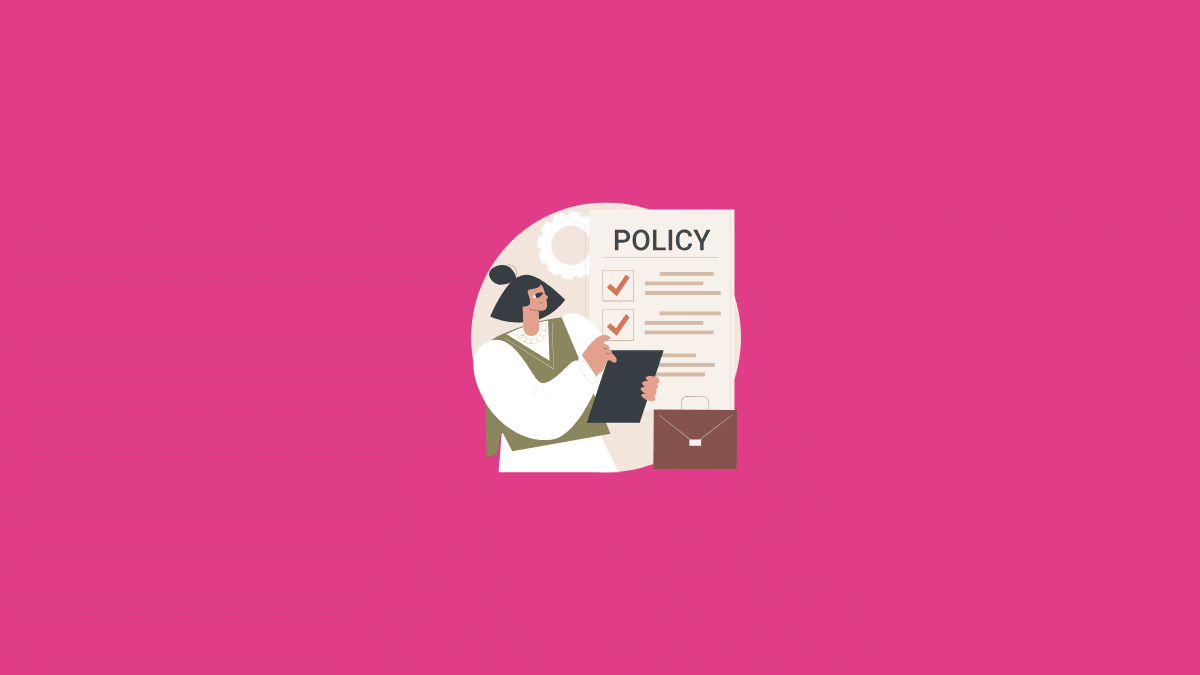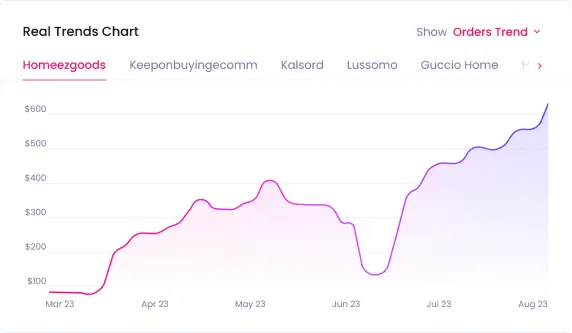Do You Need an LLC for Dropshipping?
Contents

Yes, you do need an LLC for dropshipping business. When starting a dropshipping business, choosing the right business model, such as an LLC, sole proprietorship, or another structure, is crucial for long-term success.
When it comes to protecting your business and personal assets, you should always be on the safe side with limited liability protection.
We have outlined some tips for starting a dropshipping business and the exact time when you should get an LLC.
Key Takeaways


Business Structure

If you’re starting a dropshipping business, you need to decide on a business model and structure first. Selecting the right structure isn’t just about legal formalities—it sets the foundation for how you manage and grow your business.
If you plan on collecting a good amount of profit from your business, you should set up your business as a legal entity. This not only protects your personal assets but also ensures you operate professionally and stay compliant with tax regulations.
In addition to choosing the right structure, leveraging tools like Sell The Trend can significantly streamline the process of setting up and managing your business. Its automation features and advanced AI capabilities allow you to focus on scaling your operations rather than getting bogged down by administrative tasks.
There are different types of business entities, but online retailers usually settle with one of the following three:
Sole Proprietorship

Sole proprietorship is the most basic business structure you can register as.
However, know that the type doesn’t offer you any personal liability protection. In the event you get sued by a customer, you may come close to losing your personal assets.
On the other hand, the tax filing required for this is basic and you only need to report the earnings when you’re filing for personal tax.
Limited Liability Company (LLC)

LLC or Limited Liability Company is essentially the act of setting up your online store as a business entity that is separate from you.
This ensures that in the event a customer decides to take you to court because of a misunderstanding on the quality of the product or feels cheated by you in monetary ways, the court won’t be able to make you pay for compensation by using your personal assets, only your business assets.
We can’t call the LLC foolproof, but it is better compared to a sole proprietorship in terms of personal asset protection.
You will have to file tax returns separately for your company and pay ongoing fees. You will also have to pay a fee for establishing the company. As LLCs differ from state to state it’s good to check this guide on how to form an LLC on every state.
Advantages of an LLC
- Limited Liability Protection: The primary advantage of an LLC is that it protects your personal assets from business liabilities and business debts. If your business incurs debt or is sued, only the assets owned by the LLC are at risk.
- Operational Flexibility: LLCs offer flexibility in terms of management and taxation. You can choose to have your LLC taxed as a sole proprietorship, partnership, S corporation, or C corporation, depending on what best suits your financial needs.
- Credibility: Having an LLC can enhance the credibility of your business. Customers and suppliers may view your business as more legitimate and trustworthy if it is registered as an LLC.
- Pass-Through Taxation: By default, an LLC is taxed as a pass-through entity, meaning the business itself does not pay federal income taxes. Instead, profits and losses are passed through to the owners’ personal tax returns, which can simplify tax reporting.
Disadvantages of an LLC
- Cost: Forming and maintaining an LLC comes with costs, including filing fees, annual fees, and potential legal fees. These costs vary by state.
- Ongoing Compliance: LLCs must adhere to certain compliance requirements, such as filing annual reports and paying ongoing fees. Failure to comply can result in penalties or the dissolution of the LLC.
- Limited Liability is Not Absolute: While an LLC provides liability protection, it is not foolproof. In certain situations, courts can “pierce the corporate veil” and hold LLC owners personally liable. This usually happens if the LLC is found to be engaged in fraudulent activities or if personal and business finances are not kept separate.
C Corporation

If you plan on getting into the dropshipping business with huge investment and expect a considerable amount of profit, you might want to look into C Corporation first.
Many companies tend to choose this option, as it seems to offer the maximum liability protection and potential tax benefits.
The incorporation is more expensive than LLC and the tax filing is doubled.
If you have an average size business like most, LLC might be your best option.
If you have enough funding from the start to pay for the incorporation and ongoing fees, we recommend going for an LLC from the start.
If that is not the case, start with a sole proprietorship and then eventually move on to an LLC.
Do You Need an LLC for Dropshipping?
How do you know when to opt for LLC though? Well, there are some factors you should take into consideration
The Scale Of Your Dropshipping Business

It’s not necessary to go for an LLC if you’ve started a business recently and don’t even know whether it is going to be successful.
However, if your store has been open for some time and you’ve been seeing a steady increase in customers perhaps due to some SEO apps, you should consider it.
Good traffic isn’t enough to register for an LLC though. Your business should have some level of success.
A monthly profit margin that you can rely on so that even after you’ve filed for tax, and paid your ongoing LLC fees, you still have some profit left for further investment and for your own needs.
You can have an excellent month and you decide to opt for LLC. Don’t be hasty. See if the streak continues for some months and the profit margin stays above the line.
The Time Of Establishment of Your Dropshipping Business

If your business has only been around for a month or two, registering for an LLC seems a bit hasty. This ties to the first point directly.
Keep track of the progress in your business and see if your business continues to grow or at least continues at the same rate before getting an LLC.
Risk Assessment

What kind of products are you selling? Does your product come with a certain amount of risk?
Say, you’re selling electronic products and a faulty one could lead to the customer getting hurt or even worst-case scenario, setting the house on fire.
In such a situation, your customer is quite likely to sue you. If you don’t win the case, you’re going to live with the nightmarish situation of having to turn your personal assets in if the damage is too big.
In the case of businesses with risky products, you shouldn’t delay in getting an LLC.
By forming an LLC, you can protect your assets from being used to cover any business debts incurred by your dropshipping business.
The previous two points on whether your business is successful or even for a month old are unimportant.
By relying on sole proprietorship, you will be putting your house, car, jewelry, or any other personal asset on the line.
Additionally, separating personal and business finances is crucial to protect your personal assets and ensure better financial management.
EIN Number

To start an online business, the Internal Revenue Service (IRS) has made it mandatory for all businesses to get an employer identification number (EIN). This is similar to a Social Security number, but it is only applicable to the legal company.
This is the number you will have to refer to when you are filing for taxes, applying to start your dropshipping account, or opening a bank account in the name of your business.
Anything related to your business has to be done through the EIN to make sure all transactions and sales are attributed to the business.
Finances

This should be obvious but if you’re starting a dropshipping business, do not invest in it from your personal bank account or cash.
It doesn’t matter whether you create a PayPal account, bank account or need a credit card, open all those accounts separately in the name of your business rather than yours. All transactions should be made from the business account.
An LLC operating agreement is crucial for clarifying the operational structure and member responsibilities within your LLC.
While not all states require this agreement, it plays a vital role in preventing ownership disputes and facilitating clear guidelines on profit distribution and member rights.
Opening a dropshipping business isn’t as easy as people make it out to be, but sites like Shopify do offer some services to their customers such as automatic tax calculation that makes the process much easier.
Be sure to check out all the pros and cons of the business before you dip your toes in it
The Role of an Operating Agreement for a Limited Liability Company

An LLC operating agreement is a legal document that outlines the ownership structure, management responsibilities, and operational procedures of your LLC.
While not all states require an LLC operating agreement, it is highly recommended for all LLCs, including single-member LLCs.
Why You Need an LLC Operating Agreement
- Clarify Ownership and Management Roles: The operating agreement outlines the ownership percentages of each member, as well as their responsibilities and roles within the business. This can help prevent disputes and ensure that everyone understands their rights and obligations.
- Establish Procedures for Decision-Making: The operating agreement sets forth the procedures for making important business decisions, such as voting on new members, distributing profits, and resolving disputes.
- Protect Limited Liability Status: Having a formal operating agreement can help protect your limited liability status by demonstrating that your LLC is a separate legal entity with its own management structure and operating procedures.
- Facilitate Smooth Operations: The operating agreement provides clear guidelines for how the business will be run, including how profits and losses will be distributed, how meetings will be conducted, and how the business will be dissolved if necessary.
Key Components of an LLC Operating Agreement
- Ownership Structure: The agreement should specify the ownership percentages of each member and how ownership will be transferred in the event of a member’s death or departure.
- Management Roles: The agreement should outline the roles and responsibilities of each member, including who will manage the day-to-day operations of the business.
- Profit and Loss Distribution: The agreement should specify how profits and losses will be distributed among members. This may be based on ownership percentages or another agreed-upon formula.
- Voting Rights: The agreement should establish the voting rights of each member and the procedures for making important business decisions.
- Dispute Resolution: The agreement should outline the procedures for resolving disputes between members, including whether mediation or arbitration will be used.
- Dissolution Procedures: The agreement should specify the procedures for dissolving the LLC and distributing its assets if the business is terminated.
When Should You Form an LLC for Your Dropshipping Business?

Deciding when to form an LLC depends on several factors, including the scale of your business, how long it has been operating, and the level of risk associated with your products. Here’s a closer look at each of these factors:
Scale of Your Business
The size and profitability of your business are crucial factors in deciding whether to form an LLC.
If your business is still in its early stages and you’re not yet generating significant revenue, it may make sense to start as a sole proprietorship.
However, as your business grows and starts generating consistent profits, the benefits of forming an LLC become more apparent.
Consistent Revenue Stream
If your dropshipping business is generating a steady stream of revenue, forming an LLC can help protect your personal assets from potential business liabilities. Look for consistent profitability over several months before deciding to form an LLC.
Financial Stability
Ensure that your business income can comfortably cover the costs associated with forming and maintaining an LLC. This includes the filing fees, annual fees, and any additional taxes that may be required.
Growth Potential
If you have plans to scale your business, such as expanding your product line, entering new markets, or hiring employees, an LLC provides the legal framework needed to support growth while protecting your personal assets.
Time of Establishment
The age of your business is another important consideration. If your business is still in its infancy, it may be premature to form an LLC.
However, if your business has been operating for several months and is showing signs of growth, it may be time to consider forming an LLC.
Track Record of Success
Before forming an LLC, track your business’s performance over time. If your business has consistently generated revenue and you have a clear growth trajectory, it may be a good time to formalize your business structure with an LLC.
Seasonal Trends
Consider the impact of seasonal trends on your business. If your dropshipping business experiences significant fluctuations in revenue throughout the year, it may be wise to wait until you have a better understanding of your business’s long-term performance before forming an LLC.
Risk Assessment
The level of risk associated with your products is another critical factor in deciding when to form an LLC.
Dropshipping businesses that sell high-risk products, such as electronics, health supplements, or products with safety concerns, should prioritize forming an LLC to protect against potential legal liabilities.
- High-Risk Products
- Product Liability Insurance
- Legal Environment
FAQs
Do you need an LLC to dropship?
Not necessarily. Many dropshipping businesses begin as sole proprietorships because it’s simpler and cheaper. However, forming an LLC is highly recommended as your business grows. An LLC provides liability protection, separating your personal assets from business liabilities, and adds credibility to your business.
How much is an LLC for dropshipping?
The cost of forming an LLC varies by state, ranging from $50 to $500 in filing fees. Additionally, some annual fees and taxes can range from $50 to several hundred dollars depending on your state. Other potential costs include legal fees for setting up your LLC and any optional services you might use to streamline the process.
What licenses are needed for dropshipping?
In most cases, you will need a sales tax permit and an Employer Identification Number (EIN). Other specific licenses or permits may depend on your state, city, or the type of products you’re selling.
What type of LLC for online business?
For most online businesses, including dropshipping, a single-member LLC is sufficient. If you have business partners, a multi-member LLC might be more appropriate, with an operating agreement to define roles and responsibilities.
Do I need an LLC to start a dropshipping business?
No, you don’t need an LLC to start dropshipping. You can operate as a sole proprietorship in the beginning, which is faster and less expensive.
Conclusion
Starting a dropshipping business can be exciting and rewarding, but it also comes with legal and financial responsibilities.
Choosing the right business structure is one of the most important decisions.
While a sole proprietorship may be sufficient in the early stages of your business, forming an LLC provides essential protection for your personal assets and offers operational flexibility.
When deciding whether to form an LLC, consider the scale of your business, the time it has been operating, and the level of risk associated with your products.
If your business is generating consistent revenue, has been operating for several months, and involves selling high-risk products, forming an LLC is likely the best choice.
Additionally, separating your personal and business finances, obtaining an EIN number, and creating an LLC operating agreement are crucial steps to ensure the long-term success and protection of your dropshipping business.
By taking these steps, you can focus on growing your business with the confidence that your personal assets are protected and that your business is operating within the legal framework.
Remember, while forming an LLC is an important step, it is not the only consideration when starting and running a successful dropshipping business.
You will need all the help you can get, and we are here to help. Don’t wait, sign up!







